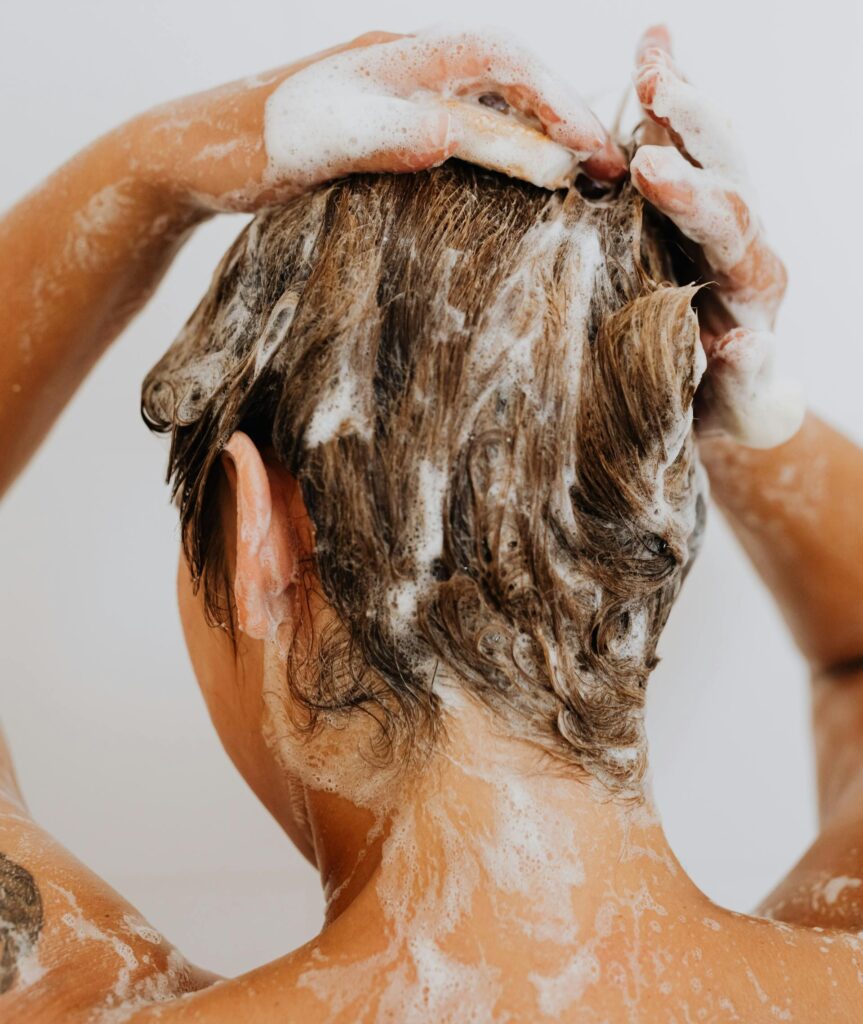Managing oily hair can feel like an endless struggle. No matter how often you wash your hair, it can feel greasy and heavy just hours after a fresh shampoo. For women dealing with oily hair, finding the right shampoo is key to restoring balance, keeping your hair looking clean and voluminous, and maintaining a healthy scalp. Oily hair isn’t just about appearance-it’s a reflection of scalp health and the overproduction of sebum, which can make selecting the best shampoo an essential step in your hair care routine.
Oily hair occurs when the sebaceous glands on your scalp produce excess sebum, a natural oil meant to hydrate and protect the scalp and hair. While sebum is beneficial, too much of it can weigh down your hair, leaving it flat, greasy, and prone to buildup. Hormonal changes, genetics, diet, and even the wrong hair care products can exacerbate this issue. That’s why choosing a shampoo specifically designed for oily hair is crucial to tackling the root cause of excess oil.
The best shampoos for oily hair are formulated to cleanse deeply without stripping the scalp of its natural oils. Over-cleansing can trigger the scalp to produce even more sebum in an attempt to compensate, creating a cycle of oiliness. The ideal shampoo strikes a balance by removing dirt, grease, and product buildup while leaving the scalp hydrated and healthy. Ingredients like salicylic acid, tea tree oil, and activated charcoal are commonly found in shampoos for oily hair due to their ability to purify the scalp, regulate oil production, and prevent clogged follicles.
Salicylic acid is a standout ingredient for women with oily hair, as it gently exfoliates the scalp and removes excess sebum without causing irritation. This beta hydroxy acid works to break down oil at the roots, leaving hair feeling fresh and light. Tea tree oil, known for its antimicrobial and anti-inflammatory properties, is another popular choice. It not only cleanses the scalp but also helps maintain a healthy microbiome, which is essential for balanced oil production. Shampoos containing activated charcoal offer a deep-cleansing experience, drawing out impurities and toxins from the scalp while detoxifying the hair.
Natural ingredients also play a significant role in shampoos for oily hair. Lemon extract, for example, is a powerful astringent that helps reduce excess oil while providing a refreshing citrus scent. Aloe vera is often included in these formulas to soothe and hydrate the scalp, preventing the dryness that can sometimes accompany deep-cleansing shampoos. Rosemary and peppermint oils are also excellent choices, as they stimulate the scalp, improve circulation, and help regulate sebum production.
Women with oily hair often benefit from shampoos labeled as “clarifying” or “volumizing.” Clarifying shampoos are specifically designed to remove stubborn buildup caused by styling products, environmental pollutants, and excess oil. However, they should be used sparingly, as overuse can strip the hair of essential nutrients. Volumizing shampoos, on the other hand, help lift the roots and create a fuller appearance, which is especially beneficial for women whose oily hair tends to lie flat.
For those with fine or thin hair, lightweight shampoos are a game-changer. These formulas cleanse effectively without weighing the hair down, ensuring your locks stay bouncy and full of life. Women with thick or coarse oily hair may prefer shampoos that offer a balance between moisture and cleansing, as overly harsh formulas can lead to dryness and frizz.
In addition to choosing the right shampoo, how you use it can also impact its effectiveness. Massaging the shampoo into your scalp for at least a minute ensures it can break down oil and debris thoroughly. Rinsing with lukewarm water instead of hot water helps prevent overstimulation of the sebaceous glands, which can increase oil production. Incorporating a double-cleansing method—shampooing twice during each wash—can provide a deeper clean, especially for women who use heavy styling products or dry shampoo between washes.
Women with oily hair often wonder whether they should wash their hair daily. While daily washing can be beneficial for some, it’s essential to listen to your hair and scalp. If daily washing leaves your hair feeling overly dry or irritated, consider alternating with a gentle, sulfate-free shampoo to maintain moisture balance. For those who prefer to wash less frequently, using a dry shampoo between washes can help absorb excess oil and refresh the scalp.
When shopping for the best shampoo for oily hair, avoid products with heavy silicones, sulfates, or parabens, as these ingredients can weigh hair down and contribute to buildup. Opt for shampoos with lightweight, water-based formulas that focus on cleansing and balancing rather than overly moisturizing. Reading product labels and understanding ingredient lists is key to finding a shampoo that aligns with your hair’s specific needs.
Oily hair can be managed effectively with the right shampoo and routine. The key is choosing products that work with your hair type while addressing the underlying causes of excess oil. With consistent care and the right ingredients, you can achieve hair that feels clean, fresh, and full of life. By investing in a high-quality shampoo for oily hair, you’ll not only enhance the look and feel of your hair but also support the long-term health of your scalp.





